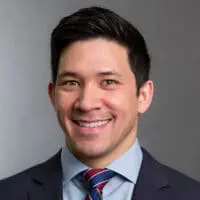Publication
Chronic Regulation: The Next Episode in Nevada’s Booming Cannabis Industry
By David L. Edelblute
There’s no question that Nevada’s cannabis industry is thriving. According to the Nevada Department of Taxation, taxable sales of legal retail and medical marijuana totaled nearly $97 million in March 20211, with $76.7 million of those sales coming from Clark County alone. Together with the steady increase in retail volume, cannabis regulation has been picking up steam through Nevada’s Cannabis Compliance Board (“CCB”) with a series of regulations and guidance providing clarity on otherwise ill-defined procedures. Not to be outdone, Nevada’s legislators also recently passed several new bills, which are detailed below, aimed at this growing industry.
Cannabis Consumption Lounges (aka “Pot Lounges”)
Assembly Bill 341 grants the CCB authority to license and regulate cannabis consumption lounges under two separate licenses. The first license, a retail cannabis consumption lounge license, allows existing dispensaries to add space for a lounge that is attached or adjacent to their adult-use cannabis retail store. The second license, an independent cannabis consumption lounge license, is intended for standalone cannabis lounges not connected with a retail establishment.
These new licenses may allow existing or prospective adult-use licensees to expand their business to provide a place where individuals can consume legal, single-use marijuana products. It also solves an issue where tourists could legally purchase marijuana products, but were not permitted to bring or use those products in many of the hotels and casinos in Nevada. While the CCB has yet to provide official guidance on many of the new regulations and procedures of this law—including new employee training requirements and mandatory ventilation systems—on July 1, existing dispensaries can start the application process for licensing with the CCB with potential opening dates toward the end of 2021. The law does not go into effect until October 1, 2021, providing the CCB time to produce the required regulations under Assembly Bill 341.
Existing and prospective adult-use licensees should contact legal counsel to determine eligibility, application procedures, and to stay informed on the forthcoming CCB regulations.
Herb and Curb
Effective May 21, 2021, cannabis dispensaries have the permanent ability to offer curbside pickup to its customers. Near the beginning of Nevada’s COVID-19 shutdowns, Governor Sisolak issued an emergency order that permitted curbside pickup at all retail businesses, including dispensaries. This curbside option proved so popular with both dispensaries and customers that Nevada’s Legislature recently passed Senate Bill 168, and Gov. Sisolak swiftly signed it into law. Retail establishments will be subject to CCB regulations setting forth procedures and requirements for curbside pickup, as well as local government ordinances that may limit this feature. Licensees should contact legal counsel to stay up-to-date on CCB regulations regarding curbside pickup, as well as any new local government ordinances.
New Cannabis Employee and Supervisor Training
Nevada’s new cannabis laws are not all fun and games. Effective July 1, 2021, cannabis establishment employees will now be required to take a 10-hour Occupational Safety and Health Administration of the United States Department of Labor (“OSHA” and “OSHA-10”) course and cannabis establishment supervisory employees will be required to take a 30-hour OSHA course (“OSHA-30”) within one year of being hired. Cannabis establishments will be responsible for the costs of these courses. Cannabis establishment employers are required to terminate employees and supervisors who fail to present their course completion cards within one year.
Senate Bill 122 also requires Nevada’s Division of Industrial Relations of the Department of Business and Industry to enforce this law with penalties starting at $500 for a first violation up to a range from $5,000 to $70,000 for third and any subsequent violations.
If you have questions regarding compliance or need more information regarding qualifying OSHA-10 and OSHA-30 courses, please reach out to legal counsel for official guidance.
Civil Liability for Non-Licensees
Assembly Bill 326 authorizes a district or city attorney to bring a civil action against any person who engages in certain cannabis-related activities without the required license or registration cards provided by the CCB. The civil penalty is capped at $50,000, and the district or civil attorney may also enjoin the violation.
Importantly, Assembly Bill 326 also creates a “cannabis establishment agent registration card” for cannabis receivers, and receivers for cannabis establishments will no longer be permitted to act as a receiver without first obtaining the required registration card. The CCB will soon have an application for receiver registration cards. This law goes into effect on July 1, 2021. Cannabis establishment receivers and prospective cannabis establishment receivers should consider consulting legal counsel regarding their requirements to obtain a registration card as soon as practicable.
Footnotes
-
https://tax.nv.gov/uploadedFiles/taxnvgov/Content/TaxLibrary/NV-Marijuana-Revenue-FY21(5).pdf
About Snell & Wilmer
Founded in 1938, Snell & Wilmer is a full-service business law firm with more than 500 attorneys practicing in 17 locations throughout the United States and in Mexico, including Los Angeles, Orange County, Palo Alto and San Diego, California; Phoenix and Tucson, Arizona; Denver, Colorado; Washington, D.C.; Boise, Idaho; Las Vegas and Reno, Nevada; Albuquerque, New Mexico; Portland, Oregon; Dallas, Texas; Salt Lake City, Utah; Seattle, Washington; and Los Cabos, Mexico. The firm represents clients ranging from large, publicly traded corporations to small businesses, individuals and entrepreneurs. For more information, visit swlaw.com.

